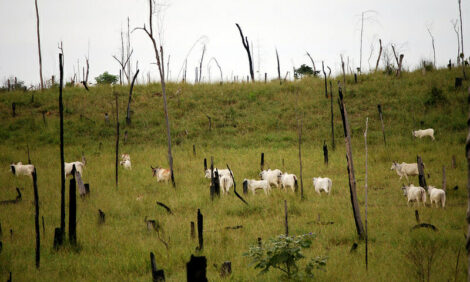



Apply Herbicides Sensibly To Avoid Restrictions
UK - Better practice regarding the use of herbicides will prevent costly restrictions.Talking in light of a recent report into weed control in grass and forage crops by ADAS, EBLEX and DairyCo, James Clarke, ADAS, told the The Farmers Weekly that the most significant costs to the livestock sector will result from reduced ability to use many clover safe herbicides.
"If non-clover safe herbicides have to be used, the loss of white clover in grass leys could cost and extra £180/ha to compensate for lost N," he said. Just because livestock farmers tend to use less sprays than arable farmers, doesn't mean they should not be concerned.
The revision of EU legislation and implementation of The Water Framework Directive (WFD) both threaten the availability of herbicides.
Changes to the WFD are the main threat to producers using grassland herbicides, Mary Vickers, EBLEX senior beef and sheep scientist told Farmers Weekly.
"If chemical levels in water remain unsatisfactorily high, changes to the WFD could result in restrictions in chemical use. This would not only have huge implications on grassland production, but could also result in rising arable feed costs."
It is therefore essential farmers improve their pesticide use to prevent water contamination.
Ensure there is no risk of drift or overspray reaching water, says Elizabeth Berry of DairyCo. "Leave a five metre unsprayed strip next to ditches and watercourses and consider using drift reducing nozzles."
Other advice was to ensure that filling and container cleaning takes place well away from drains and watercourses. Ms Berry said that pesticides should not be applied to dry or saturated soils or if rain is expected within 48 hours.
Dr Vickers said that good management can reduce the need for pesticides, for example avoiding poaching or other sward damage will restrict weed establishment. Growers could also select varieties of grass that are weed resistant.
TheCattleSite News Desk


